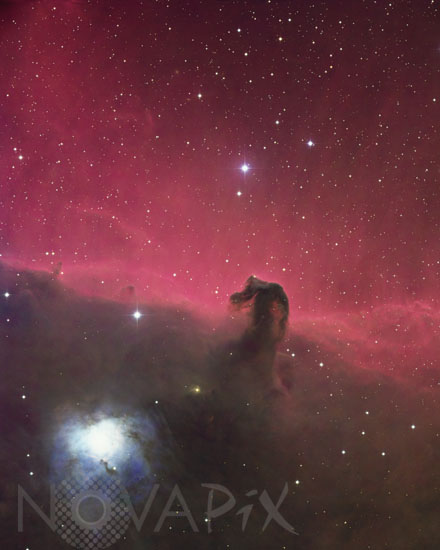Photo Agency - Astronomy - Space - Nature

The Horsehead nebula in Orion
author: Anglo-Australian Observatory/David Malin Images/Novapix
reference: a-nec04-34012
Image Size 300 DPI: 40 * 51 cm
This curious dark nebula is one of the best-known images in astronomy, probably because of its chance likeness to a recognisable form. The horse-head shape is an extension of a large cloud of dust which fills the lower part (east) of the picture and hides the light of stars beyond. The outer surface of the dusty gas (IC 434) runs roughly north-south and is illuminated by sigma Orionis (off the top of the picture) which causes the hydrogen there to fluoresce, outlining the horse-head shape. The diffuse haze to the left of the image (north) is scattered light from the bright star zeta Orionis. Though conspicuous here, the Horsehead is very difficult to see visually, even with a large telescope. A bright star is partially enveloped in the dust cloud and its scattered light is seen as the large, irregular blue reflection nebula, NGC 2023. All these objects are about 1500 light years distant.
Contact : Stéphane Aubin +33-(0)9-51-26-53-76
© Novapix - All rights reserved


